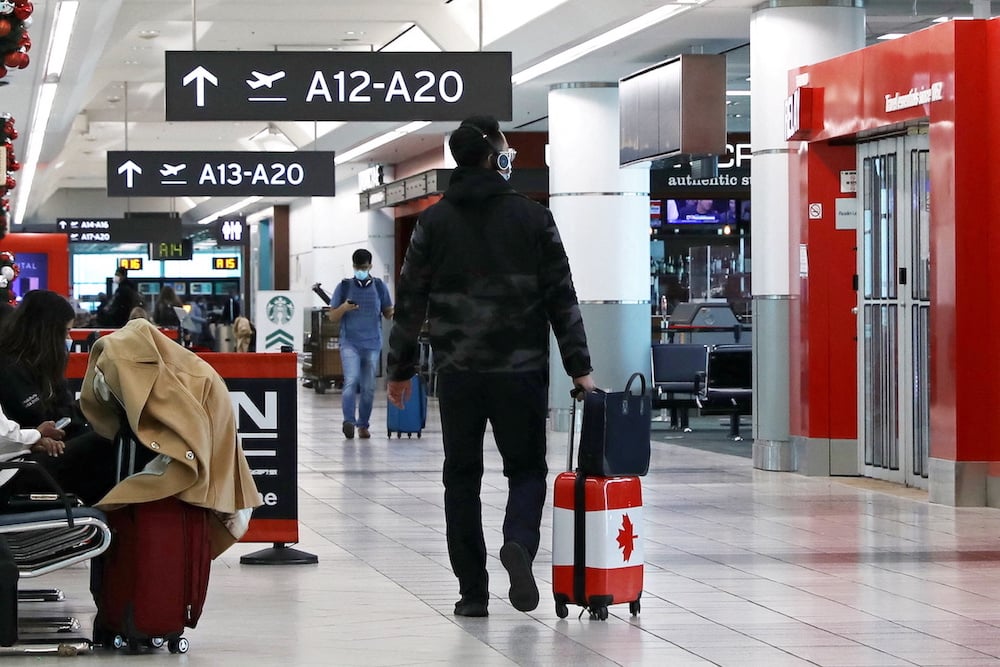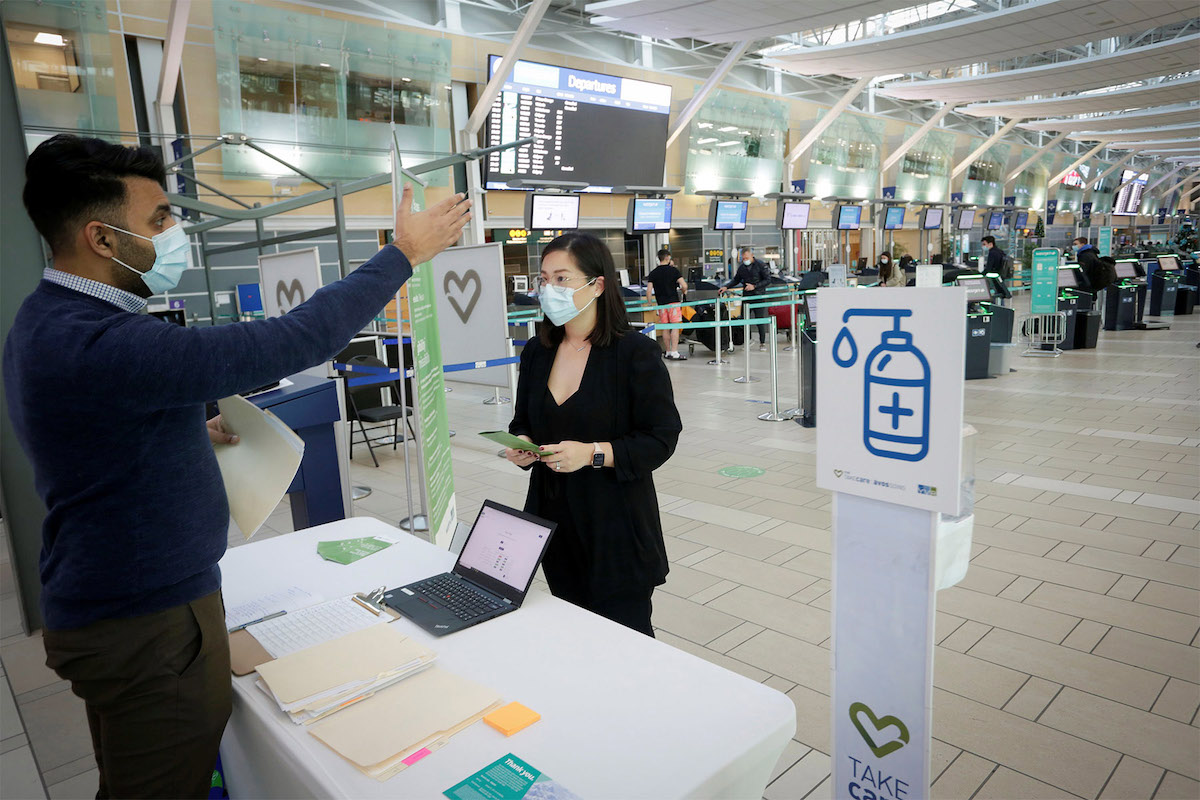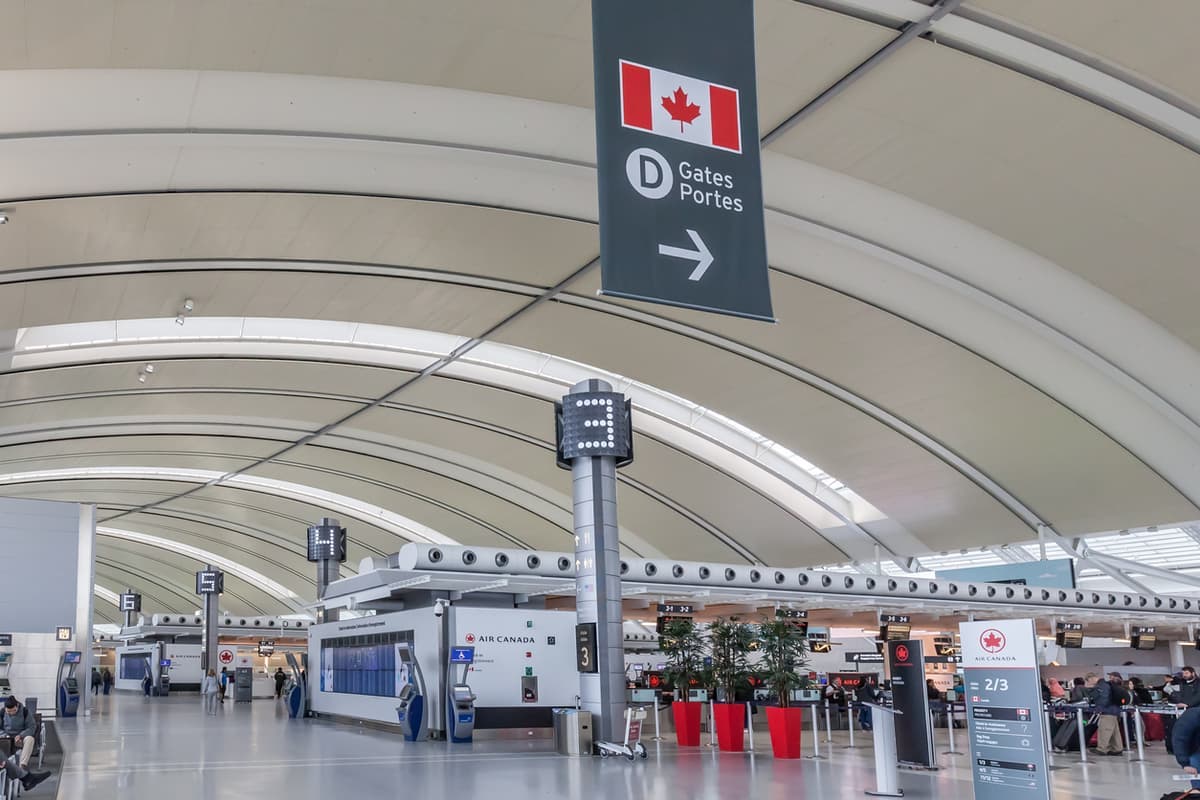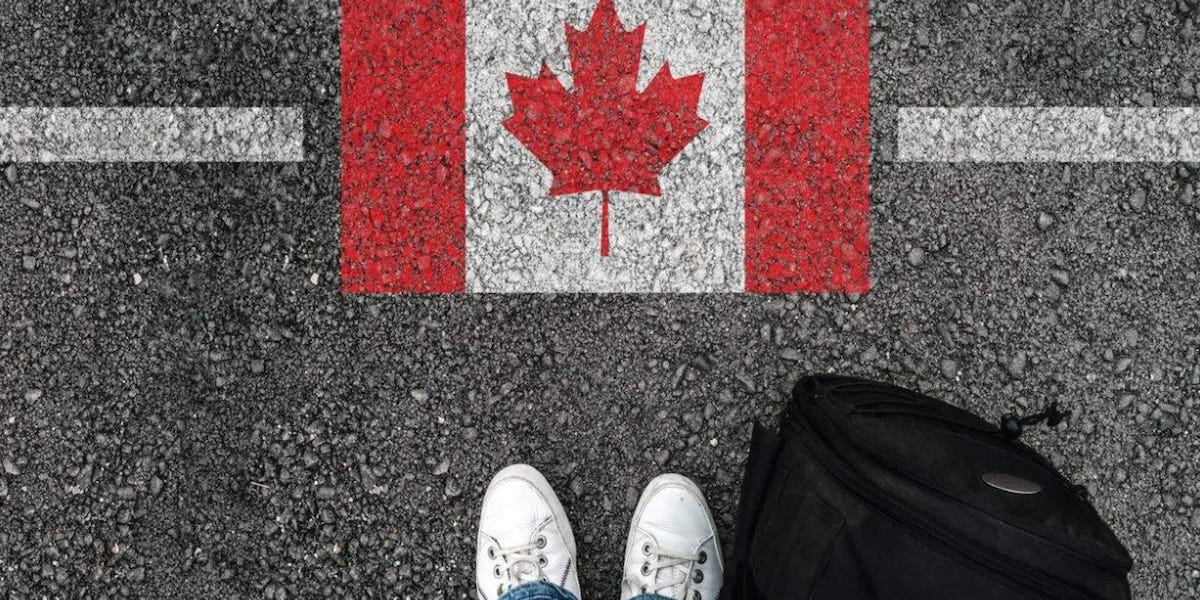
Traveling to Canada? Here are the new COVID-19 travel restrictions
Thinking about visiting the Great White North? Well, it may be a good idea to stay updated on the new Canada border restrictions. On December 21st, Canada implemented new COVID-19 restrictions in relation to the variant Omicron.
The World Health Organization has explained that this new strain of the virus had a large number of mutations along with early evidence showing an increased reinfection risk. Meaning, Canada’s border restrictions are expected to be stricter than ever.
According to Forbes, it’s been confirmed that 350 cases of the Omicron variant have been identified in Canada as of December 17th. As a result, Americans wishing to travel to Canada will only be permitted if they’re vaccinated.
Due to rising concern, Canada has mandated new regulations that include: a pre-entry molecular test result, a fourteen-day quarantine plan, and proving of eligibility to Canadian authorities at the border. On the app, ArriveCAN, travelers can submit trip details before or when entering the country.

Pre-entry molecular test
The Centers for Disease Control has labeled Canada a level three “high risk” warning to all travelers. As a result, all Canadians returning from short trips must take a molecular pre-entry test. The test must be taken outside of the country within seventy-two hours before arriving in Canada.
Accepted molecular tests are PCR – Polymerase chain reaction, Nucleic acid test (NAT) or Nucleic acid amplification test (NAATs), Reverse transcription loop-mediated isothermal amplification (RT-LAMP).
The test results can be shown on paper or an electronic device provided with the following information: traveler name & date of birth, name & civic address of the laboratory/clinic/facility that administered the test, the date on which the test was taken, the type of test, and the test result.

Who can enter Canada?
Canadian citizens (including dual citizens), people registered under the Indian Act, permanent residents of Canada, or protected persons (refugee status) are allowed to enter Canada. Fully vaccinated foreign nationals may be allowed to enter Canada on discretionary travel.
Foreign nationals who don’t qualify as fully vaccinated individuals will only be allowed to enter under specific circumstances. Foreign nationals (including United States citizens) may have to answer a series of questions on the Canadian government website to determine eligibility to travel to Canada. The eligibility results will be followed with steps & instructions explaining what to do next.
Based on a full vaccination status requirement in Canada, foreign visitors may enter if they have received two doses of any covid vaccine. There are strict requirements you must follow even if you are exempt from regular Canada border restrictions.

All people must: wear a mask at all times when in public spaces, maintain a list of all close contacts for their first fourteen days in Canada, monitor themselves for signs and symptoms of COVID-19.

Traveler responsibility
According to Canadian law, the traveler is responsible for providing documents that prove eligibility to enter the country. Once a traveler reaches a port of entry, several documents may be required to show travel history & identification.
Canada border restrictions may require important articles such as identification & proof of residence, confirmation of employment, confirmation of place of employment, confirmation of past travel history to ensure a pattern of travel frequency.
Also, there may be a possibility for a traveler to prove why they should be exempt from standard rules via an Emergency Order. If that be the case, they must demonstrate their immediate reasoning for work in Canada.

There will be an inquiry from the Canadian border patrol as to why a fourteen-day quarantine should be exempted under special circumstances. In addition, documentation from an employer as to why the travel is required and how the travel meets one of the exemptions under the Emergency Order will be needed to be in possession by the traveler.
There may be an exemption from testing requirements if the purpose of travel is related to special situations like frequent cross-border services, essential services, trade & transportation, and medical support or treatment.

Canadian government final determination
A person traveling into Canada must have no signs or symptoms of COVID-19 to enter. Final determination regarding entry & quarantine is made by a government representative at the port of entry based on the information provided to them.
An individual trying to enter the country must meet the entry requirements under the Immigration and Refugee Protection Act. Find out if a visitor visa or an Electronic Travel Authorization (eTA) is needed. Individuals normally only need one or the other, never both.
Canada considers failure to comply with a COVID-19 Emergency order as an offense under the Quarantine Act which could lead to imprisonment or fines.

Canada border restrictions exemptions do not apply to non-essential travel, including visiting friends or family. Essential travel includes: getting to a habitual residence in Canada, access to necessities such as food, medication, and fuel. As well as to ensure that essential services and economic supply chains continue.
—
Unless visiting Canada is a frequent occurrence for a traveler, being fully vaccinated and equipped with valid documents is the only way through the new Canada border restrictions. Make sure to get tested and have a visa in hand for winter vacations, romantic getaways, or business trips!



